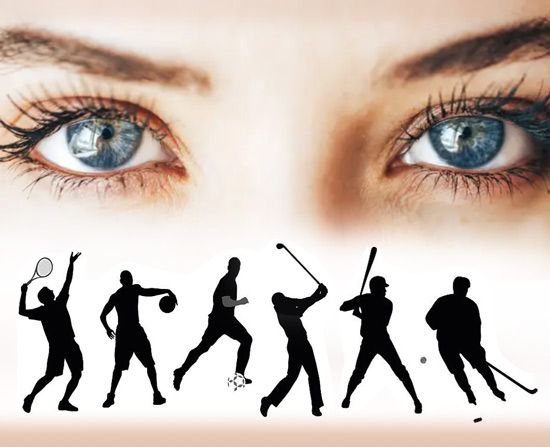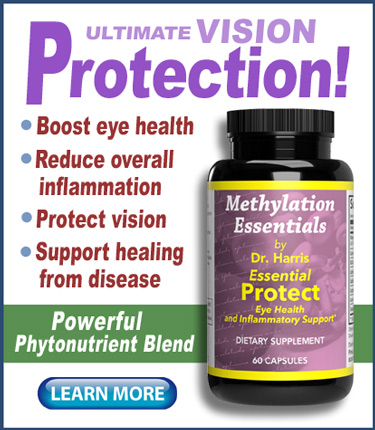Lutein and zeaxanthin are already popular nutrients for supporting eye health, but with the publication of the latest research, the two nutrients may become even more popular for their documented ability to improve athletic performance.
According to researchers from the University of Georgia, the benefits of lutein and zeaxanthin extend far beyond helping prevent eye diseases. The two nutrients actually improve visual function to the point where they help an athlete perform better—and they improve the cognitive performance of athletes at the same time!
The researchers assigned much of the credit to the ability of the two carotenoids to improve the eye’s ability to function with blue light interference—a modern problem that is affecting the eyesight of billions.
The research, published in Exercise and Sports Sciences Reviews in June 2023, included summaries of numerous earlier trials.
Lutein and zeaxanthin basics
Lutein and zeaxanthin are found in colorful fruits and vegetables, and in supplements. The two nutrients belong to the carotenoid class of pigments called xanthophylls. They’re found in high concentrations in light-exposed structures of plants. This biology also transfers to humans—the human eye needs lutein and zeaxanthin to build up in the retina in order for eye health to be optimized.
In scientific studies, zeaxanthin and lutein are often described together due to their overlapping functions in the eye, but also because the human body can convert lutein into zeaxanthin.
Zeaxanthin is concentrated in the center of the retina, while lutein is found in the peripheral regions of the retina. Together, they form the macular pigment of the eye. Both carotenoids are documented for their powerful antioxidant ability, but zeaxanthin is considered by many experts to be the most effective.
In humans, the most studied functions of all carotenoids—and especially zeaxanthin and lutein—are vision and support of eye health in general. Today they are two of the most-purchased supplements, besides vitamins and minerals, for consumers hoping to reduce the risk of eye disease.
When acquiring the nutrients through food, the Nutrient Ranking Tool at MyFoodData.com lists spinach, swiss chard, mustard greens and turnip greens as the highest ranking zeaxanthin-lutein foods.
Study basics
The study focused on how lutein and zeaxanthin helped in building-up the macular pigments in the eye. Macular pigments have been likened to “internal sunglasses” for the eyes.
They are located in the central retina, where they filter out blue light and decrease the effects of light scatter. Both of these can lead to vision damage and Age-related Macular Degeneration (AMD), so it is vital that they eye has the nutrients to protect it.
Macular Pigment Optical Density (MPOD) is the measuring system used to establish the density of the macular pigment. Higher levels of MPOD would help protect and improve vision; while lower levels would indicate some eye damage and potential for eye diseases.
This study documented that improving dietary carotenoid intake can help increase MPOD. The high MPOD then enhances visual range of the eye, and protects against atmospheric haze.
According to the study findings, even the slightest improvement in visual ability was shown to be advantageous to athletic performance.
Athletes should include carotenoids in their regimen
While athletes often focus on protein-rich foods to match their activity levels, according to the findings of the new study, they should also plan a diet rich in carotenoids. This will help improve brain and retinal levels of lutein and zeaxanthin—which, in turn, helps improve cognitive and visual performance of the athletes. Meanwhile, the carotenoids can also protect athletes from eye conditions like actinic eye and AMD.
Co-author of the study Dr. Billy Hammond, a professor of psychology at UGA’s Franklin College of Arts and Sciences, summarized the benefit of supplementing: “In a long series of studies, we have shown that increasing amounts of lutein and zeaxanthin in the retina and brain decrease glare disability and discomfort and improves chromatic contrast and visual-motor reaction time, and supplementing these compounds facilitates executive functions like problem-solving and memory. All of these tasks are particularly important for athletes.”
To capitalize on the potent benefits of lutein and zeaxanthin the researchers stated that even a “benign and relatively low effort dietary intervention” would be simply to eat more carotenoid-rich foods. According to the researchers this would mean consuming above 6 mg of lutein and zeaxanthin per day.”
The researchers acknowledged, though, that since most athletes prioritize protein instead of colorful raw foods, supplements will most likely be the mechanism to maximize lutein and zeaxanthin benefits.
Whether you want to protect your vision or improve your athletic performance, check out Essential Protect by Optimal Health Systems. The potent blend in this formula includes lutein, zeaxanthin, curcumin, Vitamin E, and more.
– – –
Source: Exercise and Sport Sciences Reviews, Wikipedia (carotenoid).


